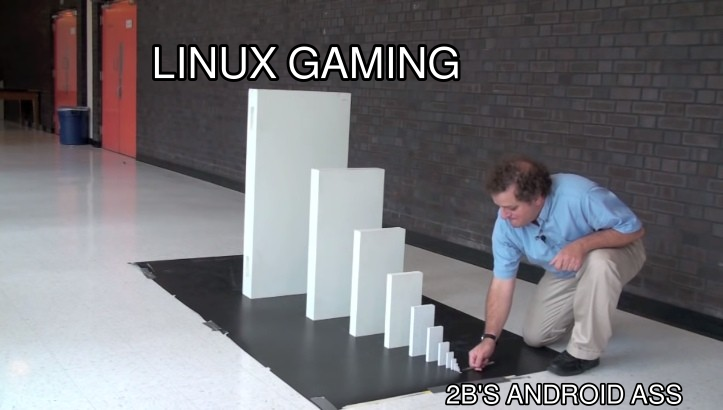What can you say about Carlton? He was Carlton.
Linux has two different kinds of "used" memory. One is memory allocated for/by running processes that cannot be reclaimed or reallocated to another process. This memory is unavailable. The other kind is memory used for caching (ZFS, write-back cache, etc) that can be reclaimed and allocated for other things as needed. Memory that is not allocated in any way is free. Memory that is either free or allocated to cache is available.
It looks like htop only shows unavailable memory as "used", while proxmox shows the sum of unavailable and cached memory. Proxmox "uses" 11 GB, but it's not running out of memory because most of it is "available".
Is this like a beanie babies reboot?
In his newest (and worst) How Do You Do Fellow Kids moment, Mark Zuckerberg launches the Poob service, accessible exclusively through the Metaverse. What does it do? Fucked if we know.
Absolutely spewing stuff from an unfortunate hole in his neck?
Right, everybody wants their freedom-loving metal giantess guardian, then it's all "I have a family" this and "I'm the wrong person" that when the government starts feeding citizens to the world serpent that lives inside national monuments.
Thoughts and prayers ought to fix it right up.
Not on my own, I'm technically only responsible for the network and cybersecurity, but not being able to log out of an education account on a public computer is a pretty serious threat. Fortunately I'm on good terms with the dean and he's always been receptive to my concerns.
As a university sysadmin that spent half a fucking hour yesterday trying to log someone out of a classroom computer's MS Office software (the "sign out" button did fuck all, go figure): fuck Microsoft, fuck Office, fuck Outlook, fuck Onedrive, fuck their SSO, and their mother too. Next semester I'm sanitizing the computers. Students will use LibreOffice and they'll like it.
I might be a little angry.





I felt that. I have a debilitating fear of social interactions where I don't know the correct way to act ahead of time. Having to consciously parse and adapt to what other people are doing, in real time, is my idea of hell.
Society needs a manpage.